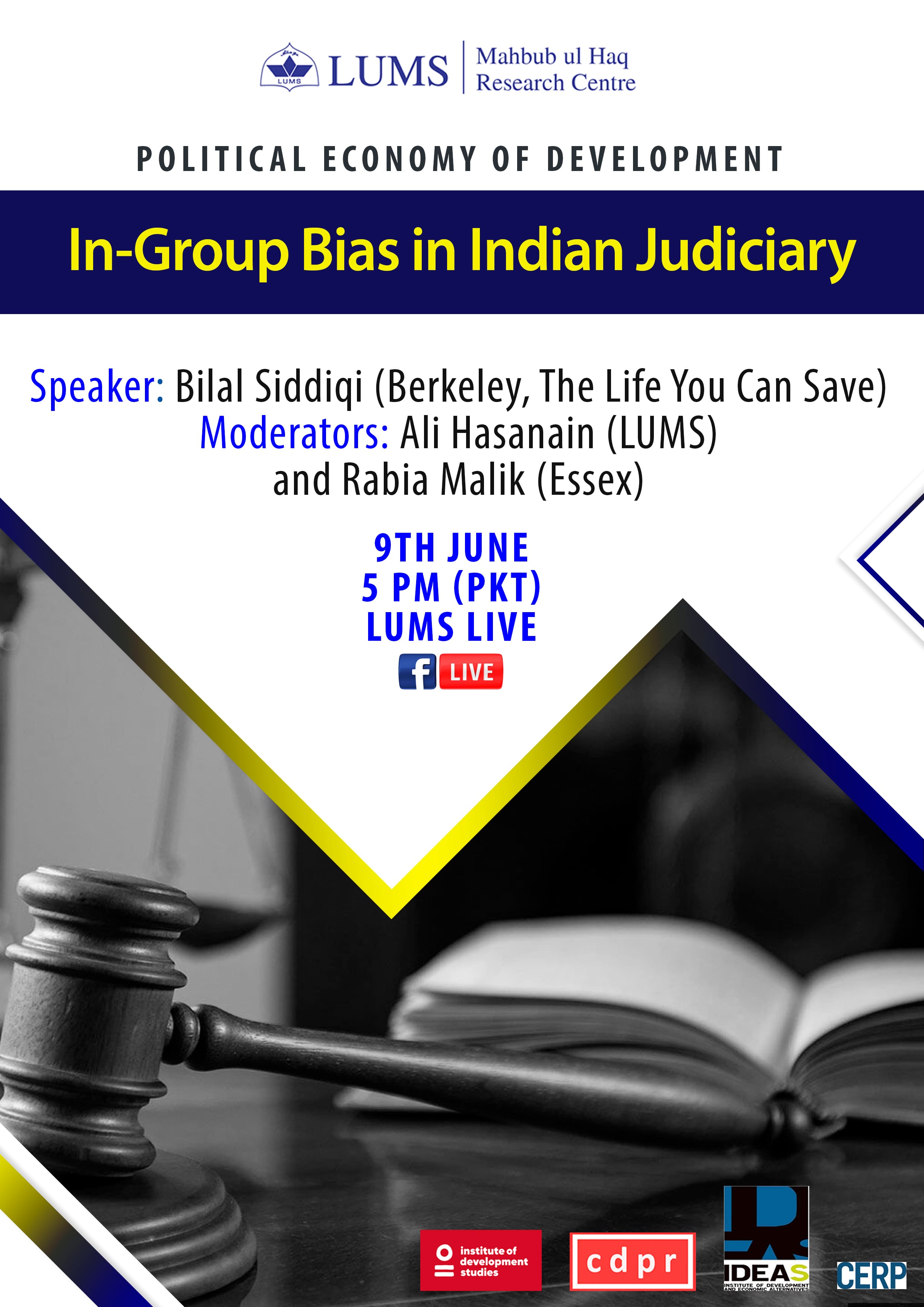In-Group Bias in Indian Judiciary
Speaker: Bilal Siddiqi (Berkeley, The Life You Can Save)
Moderators: Ali Hasanain (LUMS) and Rabia Malik (Essex)
Date: 9th June, 2022
Time: 5:00 PM (PKT)
The panelists discuss the research project of judicial in-group bias in Indian criminal courts using a newly collected dataset on over 5 million criminal case records from 2010–2018. After detecting gender and religious identity using a neural-net classifier applied to judge and defendant names, the research exploits quasi-random assignment of cases to judges to examine whether defendant outcomes are affected by assignment to a judge with a similar identity. In the aggregate, the project estimates tight zero effects of in-group bias based on shared gender, religion, and last name (a proxy for caste). The researchers do find limited in-group bias in some (but not all) settings where identity is salient – in particular, they find a small religious in-group bias during Ramadan, and they find shared-name in-group bias when judge and defendant match on a rare last name.
Dr. Bilal Siddiqi is Director of Research at the Center for Effective Global Action at the University of California, Berkeley. His research interests lie in law and economics, political economy, and applied microeconomics, focusing on the relationship between law, institutions, conflict, and development. Most recently, he was an Economist in the Development Impact Evaluation (DIME) department at the World Bank. His research has been published in the Quarterly Journal of Economics, Science, Lancet, and others. Dr. Siddiqi holds a B.Sc. (Hons) from LUMS and received his Ph.D. and MPhil in Economics from Oxford University.
Dr. Ali Hasanain is an Associate Professor and the Head of the Economics Department at LUMS and teaches courses on the economics of the media, corruption, markets, and the law. His research focuses primarily on how public service delivery can be improved through reform initiatives, particularly through technological progress and improvements in the media. He also studies how information and communication technologies (ICT) can improve market functioning. Dr. Hasanain’s research has been featured in The Guardian, Economist, Huffington Post, various World Bank blogs. He received his Ph.D. from George Mason University in 2010.
Dr. Rabia Mailk is an Assistant Professor in the Department of Government at the University of Essex. Prior to this she was a Post-Doctoral Associate at New York University Abu Dhabi and has spent a year at LUMS as an Assistant Professor in Political Science. Dr. Mailk's research focuses on comparative politics in developing countries with a particular interest in distributive politics and development, political accountability, clientelism, gender and political participation in the context of Pakistan, and other South Asian countries. She has published in the Journal of Politics, The British Journal of Political Science, and Comparative Political Studies. She received her Ph.D. in Political Science from the University of Rochester.

Mahbub ul Haq Research Centre at LUMS
Postal Address
LUMS
Sector U, DHA
Lahore Cantt, 54792, Pakistan
Office Hours
Mon. to Fri., 8:30 a.m. to 5:00 p.m.

